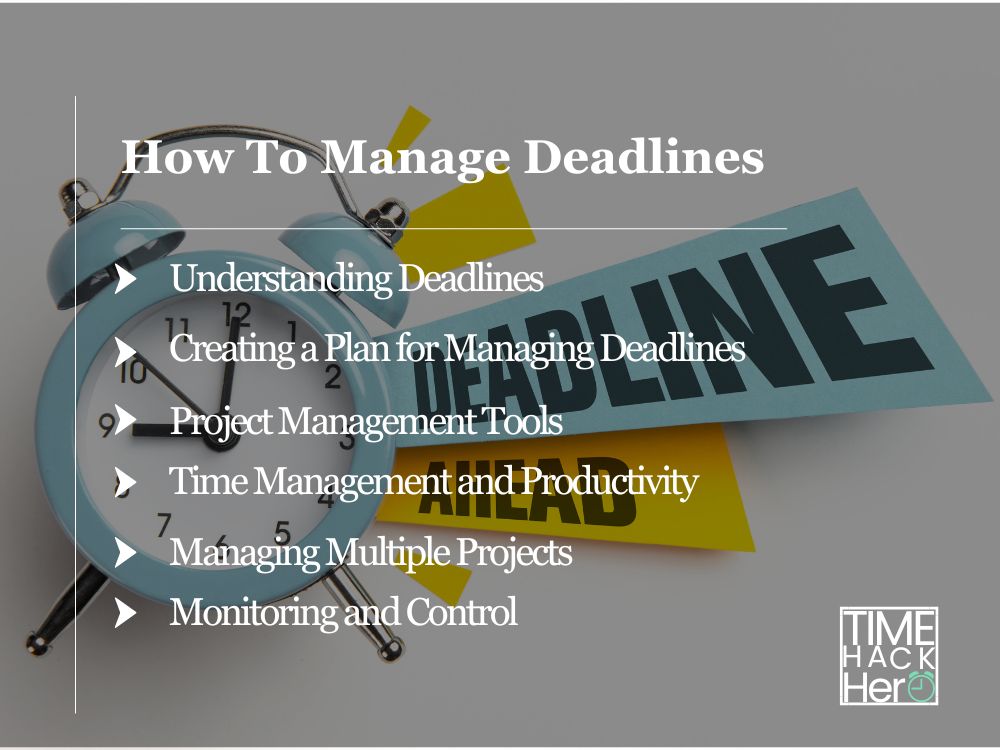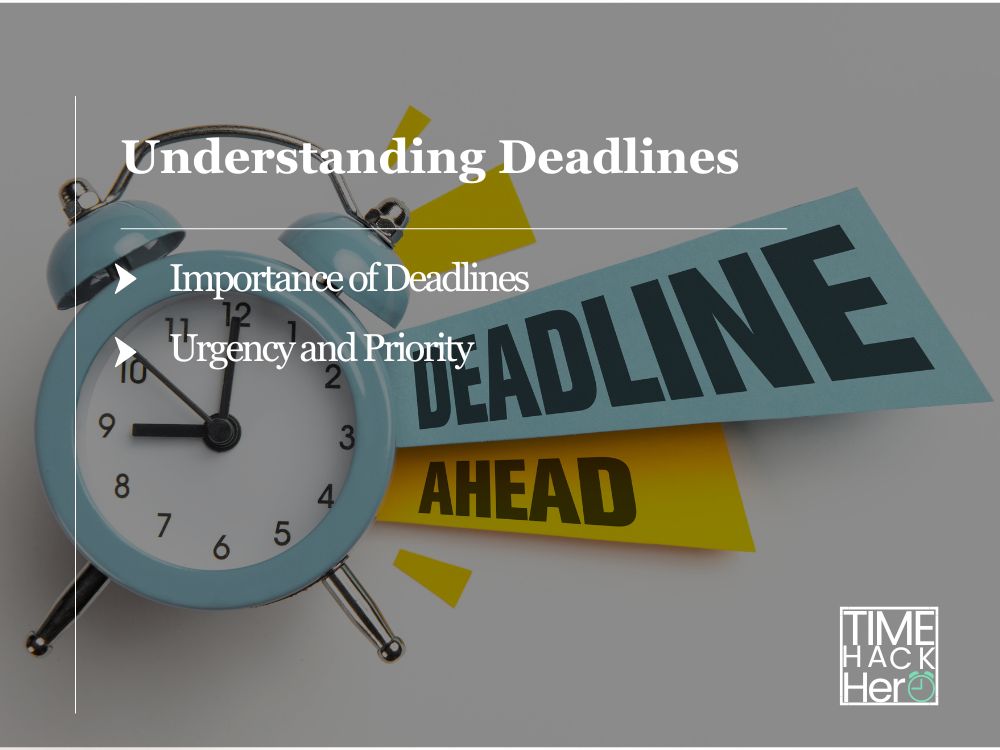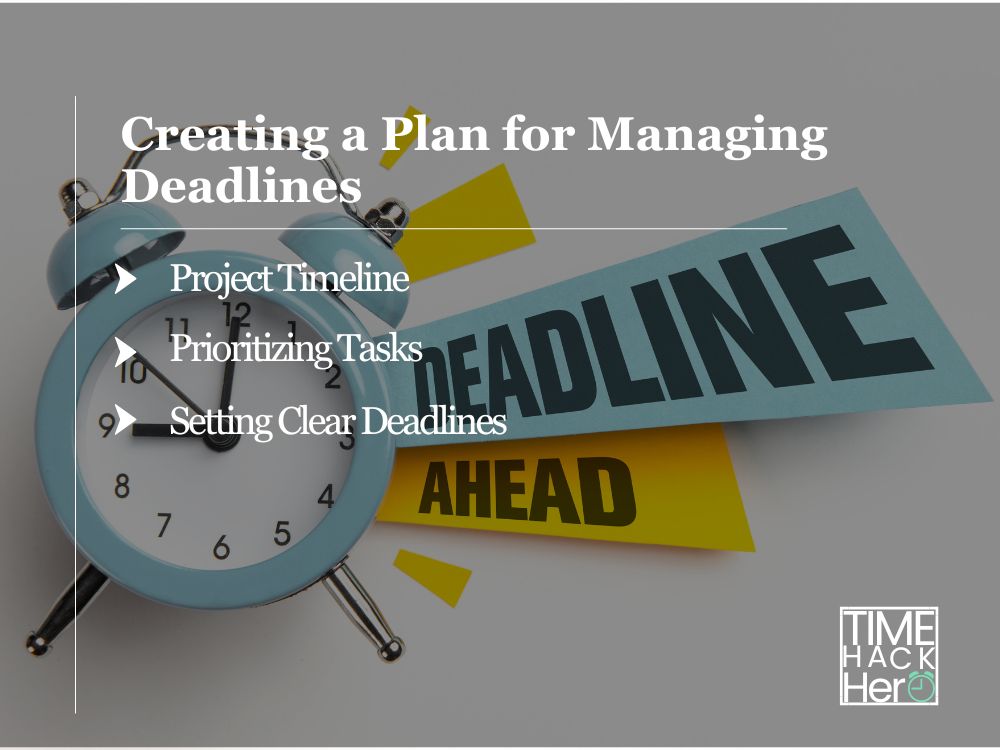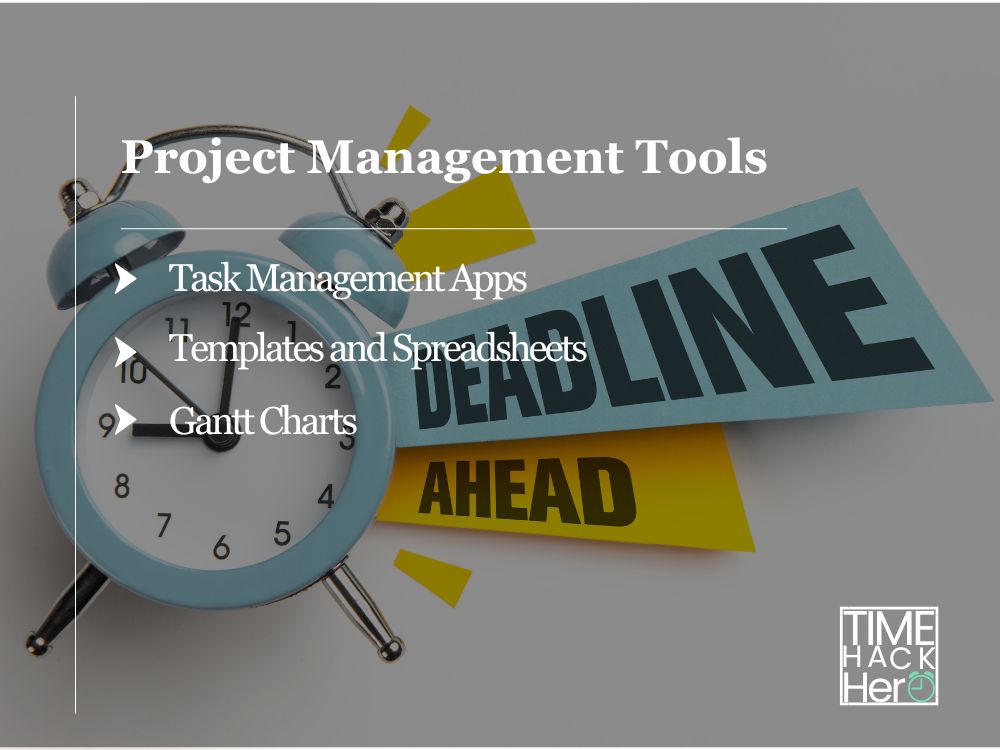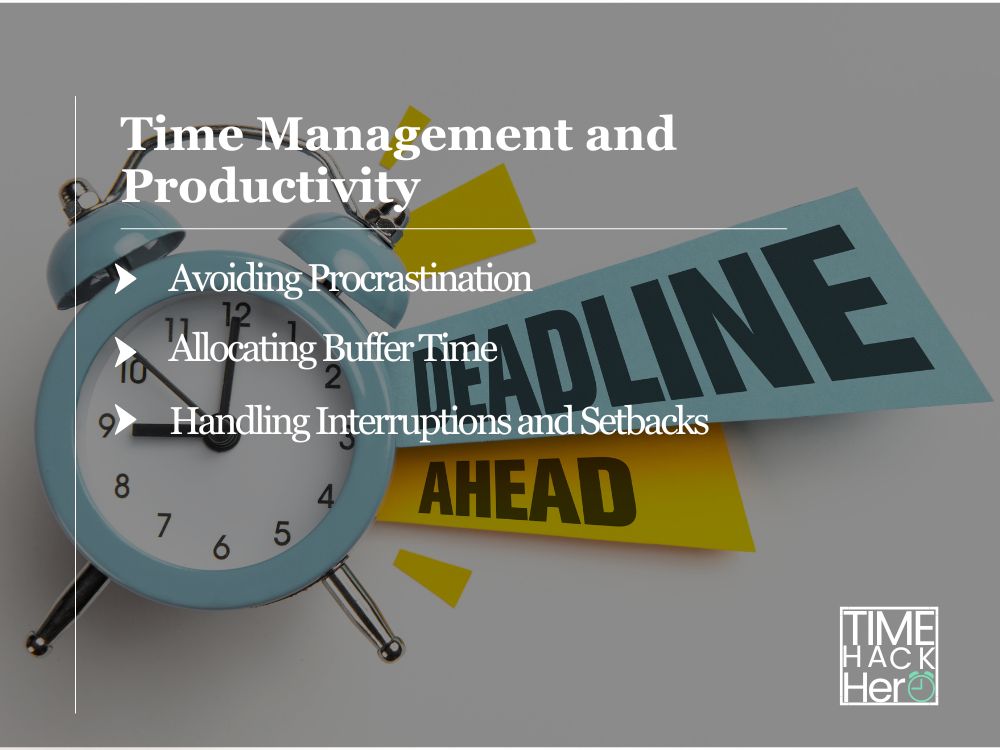Successfully managing deadlines is a skill that virtually every professional strives to master. In a high-paced work environment, meeting deadlines is crucial for maintaining efficiency and productivity. Many individuals struggle with balancing multiple projects and deadlines, which can lead to stress, burnout, and unsatisfactory results. This article will explore different strategies and techniques to help you manage deadlines more effectively, ensuring that your work is completed on time and to the best of your ability.
Understanding the importance of deadlines is key to achieving success in any field. Deadlines serve as checkpoints to help guide progress and ensure that goals are reached in a timely manner. They also foster a sense of accountability and focus, helping teams and individuals stay on track and prioritize responsibilities. By recognizing the significance of deadlines and implementing effective deadline management practices, professionals can enhance not only their own performance, but also the overall success and growth of their organization.
In order to effectively manage deadlines, it’s important to have a clear understanding of what is required for each task, allocate adequate resources and time, and maintain open lines of communication with team members and supervisors. Furthermore, utilizing project management tools and regularly evaluating progress can help you stay organized and on schedule. In the following sections, we will delve deeper into these strategies and provide practical tips for mastering the art of deadline management.
Table of Contents
Understanding Deadlines
Importance of Deadlines
Deadlines are a crucial aspect of both professional and personal life. They help ensure that tasks and projects are completed within a specified time frame. Meeting deadlines contributes to a positive reputation, builds trust, and demonstrates reliability. Furthermore, deadlines can improve productivity by creating a sense of urgency and motivating individuals to focus on their tasks.
Urgency and Priority
When managing multiple deadlines, it is essential to distinguish between urgency and priority. Urgency refers to the time constraint of a task, while priority pertains to the importance or impact of completing the task. Consider the following examples:
- High urgency, high priority: A task that needs to be completed quickly and has significant consequences if not addressed
- High urgency, low priority: A task with a strict deadline, but with lesser consequences if left incomplete
- Low urgency, high priority: A task that is important but does not need to be completed immediately
- Low urgency, low priority: A task that can be done at a leisurely pace without significant consequences
To effectively manage deadlines, assess each task’s urgency and priority. Focus on high-priority tasks first, regardless of their urgency. For urgent tasks, allocate time and resources efficiently and, if possible, delegate less critical tasks to your team.
In conclusion, understanding deadlines is crucial for effective time management and productivity. By recognizing the importance of deadlines and distinguishing between urgency and priority, you can prioritize tasks more efficiently and achieve your goals with confidence.
Creating a Plan for Managing Deadlines
Project Timeline
A project timeline is a visual representation of the tasks and milestones needed to complete a project by its deadline. Creating a project timeline will help you:
- Estimate the duration of each task
- Determine task dependencies
- Allocate resources more efficiently
- Monitor the project’s progress
To create a project timeline, follow these steps:
- List all tasks and milestones involved in the project
- Estimate the duration of each task
- Identify dependencies between tasks
- Allocate resources to tasks
- Set a start and end date for each task
Use project management software or tools like Gantt charts to help visualize and manage the timeline.
Prioritizing Tasks
Effectively prioritizing tasks is essential for deadline management. To prioritize tasks:
- Identify tasks that have the highest impact on your project goals
- Categorize tasks based on their urgency and importance
- Allocate more time and resources to high-priority tasks
- Break down larger tasks into smaller, more manageable sub-tasks
- Follow a step-by-step approach to complete tasks in order of priority
Remember to update the priority of tasks as project conditions change.
Setting Clear Deadlines
Clear deadlines are crucial in project management for ensuring timely completion. To set clear deadlines:
- Break down the project into smaller, manageable tasks
- Estimate the time required for each task
- Set realistic deadlines by considering factors like task complexity and available resources
- Ensure that all stakeholders are aware of and agree on deadlines
- Communicate any changes in deadlines to the team and stakeholders in a timely manner
By following these strategies, you can create an effective plan for managing deadlines and improve overall project productivity.
Project Management Tools
Task Management Apps
Task management apps are invaluable tools for managing deadlines. These apps help you organize and prioritize tasks, set deadlines, and allocate resources for efficient project management. Some popular task management apps include Microsoft To-Do and Asana. Features of these apps often include:
- To-do lists: Create and manage lists to stay organized
- Due dates: Set deadlines for individual tasks
- Reminders: Receive notifications before tasks are due
- Progress tracking: Monitor the progress of tasks in real-time
- Resource allocation: Assign tasks to team members
Templates and Spreadsheets
Templates and spreadsheets can significantly improve the management of deadlines. Tools like Microsoft Excel and Google Sheets offer customizable templates to help you plan and track project tasks:
- Data organization: Organize tasks and related information in a structured way
- Control: Maintain control over tasks and timeline by adjusting plans as needed
- Resource management: Keep track of allocated resources and team member responsibilities
A few types of templates commonly used in deadline management include:
- Project timeline templates: Visualize the project schedule and important milestones
- Task list templates: Organize tasks and monitor progress
- Resource allocation templates: Display and manage assigned resources
Gantt Charts
Gantt charts are indispensable tools for managing project deadlines effectively. A Gantt chart represents the project timeline, showing individual tasks, their durations, and dependencies. It enables teams to visualize the entire project at a glance, making it easier to identify bottlenecks and ensure timely completion. Gantt charts offer several benefits for deadline management:
- Clarity: Provides a clear visual representation of the project timeline
- Dependencies: Highlights dependencies between tasks to prevent scheduling conflicts
- Collaboration: Facilitates teamwork by showing each team member’s responsibilities
Gantt chart tools like TeamGantt and Microsoft Project can help you create and maintain Gantt charts, allowing for better deadline management and overall project success.
Time Management and Productivity
Avoiding Procrastination
Procrastination can be a major productivity killer. One efficient way to overcome it is by using the Pomodoro Technique, which involves setting a timer for 25 minutes and focusing on a single task during that period. This helps you establish deadlines for your tasks and break your work up into manageable chunks. Other productivity strategies include:
- Prioritization: Organize your tasks by their importance and urgency.
- Task management: Break larger tasks down into smaller, manageable parts.
- Reminders: Set reminders for deadlines and milestones to ensure progress.
Allocating Buffer Time
In addition to prioritizing tasks and events in your schedule, it’s important to allocate buffer time between activities. This allows you to account for any delays, changes, or interruptions that may occur. Buffer time can help with:
- Managing workload: Ensuring you have enough time to complete tasks and meet deadlines.
- Organization: Adjusting your schedule to accommodate unforeseen events.
- Time management: Keeping your productivity levels balanced throughout the day.
Handling Interruptions and Setbacks
Interruptions and setbacks can negatively impact your productivity and time management if not handled properly. To address these issues, implement the following strategies:
- Set boundaries: Establish clear expectations regarding your availability for meetings and events, to minimize potential interruptions.
- Quick evaluations: When interruptions occur, evaluate their importance and decide whether they should be addressed immediately or postponed.
- Adaptability: Be prepared to adjust your schedule and reprioritize tasks to accommodate unexpected setbacks or changes to your workload.
Incorporating these time management techniques and strategies will help you manage deadlines more effectively, stay organized, and boost productivity levels.
Managing Multiple Projects
Cross-Project Prioritization
In managing multiple projects, it is crucial to prioritize tasks based on their importance and deadlines. Cross-project prioritization provides a clear view of how to allocate resources effectively. To prioritize tasks, project managers can:
- Create a list of all projects and their associated tasks
- Rank tasks based on their urgency, importance, and alignment with organizational goals
- Adjust priorities as needed, considering external factors and updated information
Using a task tracking tool can help project managers keep their priorities in sync with the team’s progress. This enables the team to focus on the most critical tasks and move forward efficiently.
Resource Allocation
Resource allocation is another essential aspect of managing multiple projects. A well-organized resource allocation process ensures that all projects receive the necessary attention and resources they need to succeed. Here are some steps for effective resource allocation:
- Identify which resources are needed for each project, such as staff, budget, and equipment
- Allocate resources according to task priorities and project timelines
- Monitor resource usage to detect potential bottlenecks or underutilized resources
- Adjust resources as needed to accommodate changes in project priorities or resource availability
Implementing centralized project management tools can facilitate resource allocation and management across multiple projects. By having a single source of truth, project managers can easily track resource availability and adjust allocations as needed. This contributes to overall organizational efficiency and enables project managers to handle multiple projects and deadlines effectively.
Monitoring and Control
Status Tracking and Progress Reports
Monitoring and control are crucial steps in managing deadlines successfully. One way to ensure that your projects stay on track is by implementing status tracking and progress reports. This can be done using deadline management software, which allows you to:
- Track progress on tasks and deliverables
- Assign and allocate resources efficiently
- Update the project timeline and address any changes necessary
Regular communication with project stakeholders is also important to maintain accountability and avoid potential failure. This can be done through:
- Weekly or biweekly status meetings
- Detailed progress reports shared with stakeholders
- Transparent communication channels to update team members on project changes
Addressing Changes and Roadblocks
During the course of a project, it’s common to encounter roadblocks and unforeseen changes. The key is to address these issues head-on and adjust project plans accordingly. Here are some steps to manage changes and roadblocks:
- Acknowledge the issue: Identify any discrepancies between the initial time estimate and the actual progress, and bring them up to project stakeholders for approval.
- Prioritize tasks: Apply the planning fallacy principle by prioritizing tasks based on their importance and time constraints. This can help you focus on essential tasks first and avoid getting overwhelmed.
- Allocate resources efficiently: Ensure that you have enough resources to tackle high priority tasks first, and readjust your resource allocation as needed.
- Update the project timeline: Revise your project timeline to accommodate the new changes in tasks, deadlines, or resource allocations.
By addressing changes and roadblocks effectively, you can maintain better control over your projects and improve the chances of meeting deadlines on time.
Maintaining Quality and Timeliness
Managing deadlines effectively requires a balance between maintaining high quality work and completing tasks in a timely manner. To achieve this balance, it is essential to develop a strategic approach that incorporates various aspects of time management and quality control.
One way to prioritize both quality and timeliness is by breaking down large tasks into smaller, more manageable chunks. This process helps in better understanding the scope of the project and eliminates the chances of missing important elements, ensuring the quality of work. Along with breaking tasks into smaller units, attaching milestone deadlines to each task allows for regular progress monitoring and improved time management.
– Break large tasks into smaller, manageable chunks
– Attach milestone deadlines to each task
– Regularly monitor progress
Planning and time management play a crucial role in maintaining quality and timeliness. Establishing a clear schedule for each task, including start and end dates, helps allocate the appropriate amount of time for completing assignments while avoiding procrastination. By keeping track of your progress, you can assess the level of quality in your work and make adjustments as needed.
Benefits of effective planning include:
- Accomplishing more in less time
- Reducing procrastination
- Boosting confidence
- Advancing your career or education
To maintain high quality while meeting deadlines, develop a habit of regularly reviewing and updating your to-do lists as priorities or task requirements might change. Additionally, it’s essential to stay adaptable and flexible, as unexpected situations may arise that require changes to the initial plan.
In conclusion, managing deadlines and maintaining quality in your work involves a combination of proper planning, breaking tasks into smaller parts, setting milestone deadlines, and staying adaptable as project requirements change. By focusing on these key aspects, you will not only meet deadlines but also ensure that the quality of your work remains consistent.

